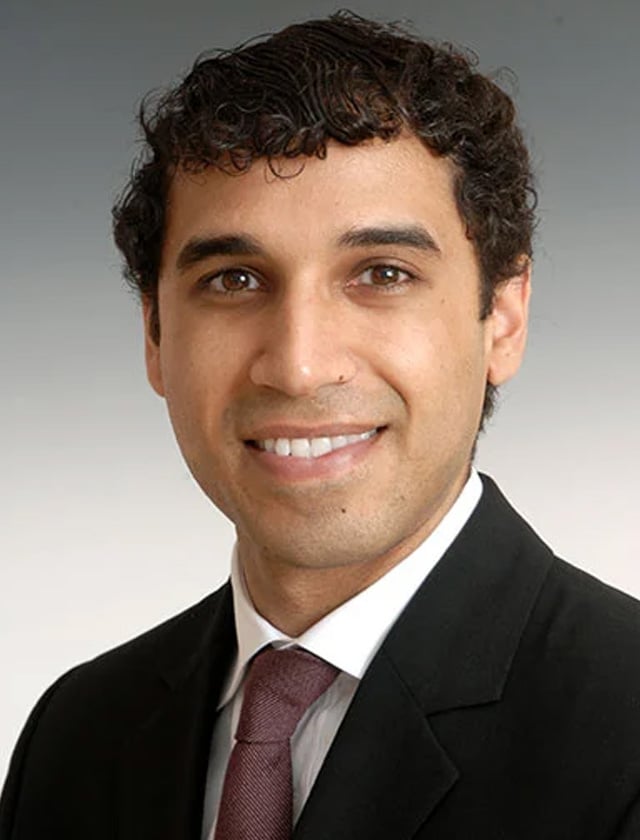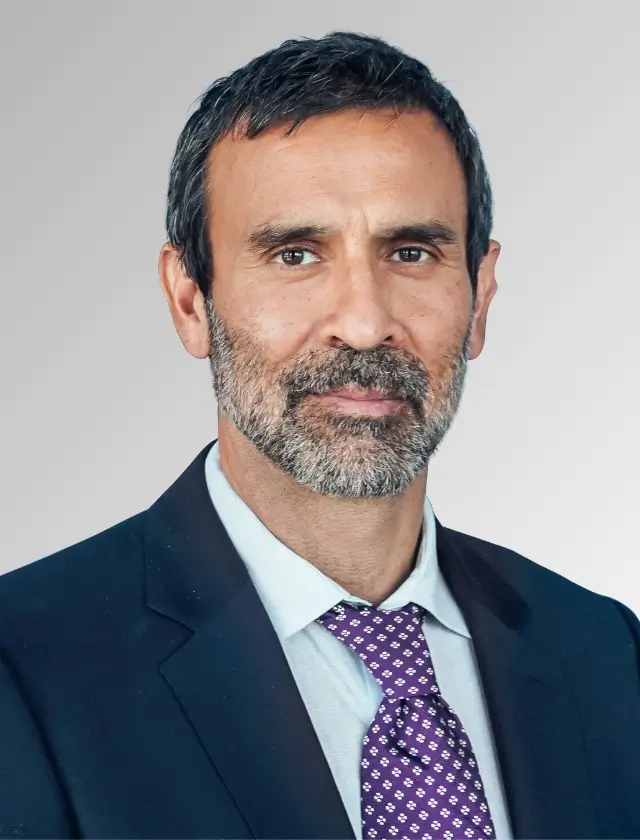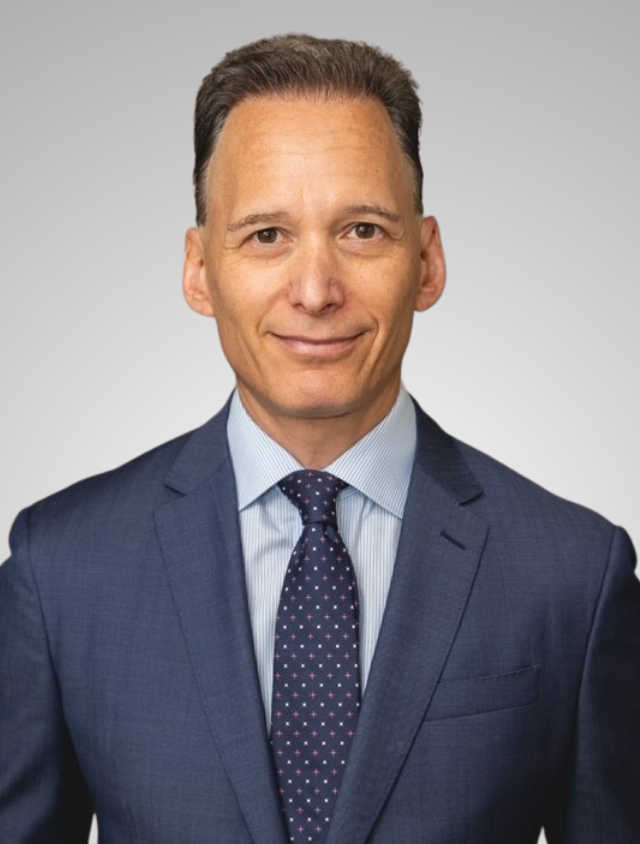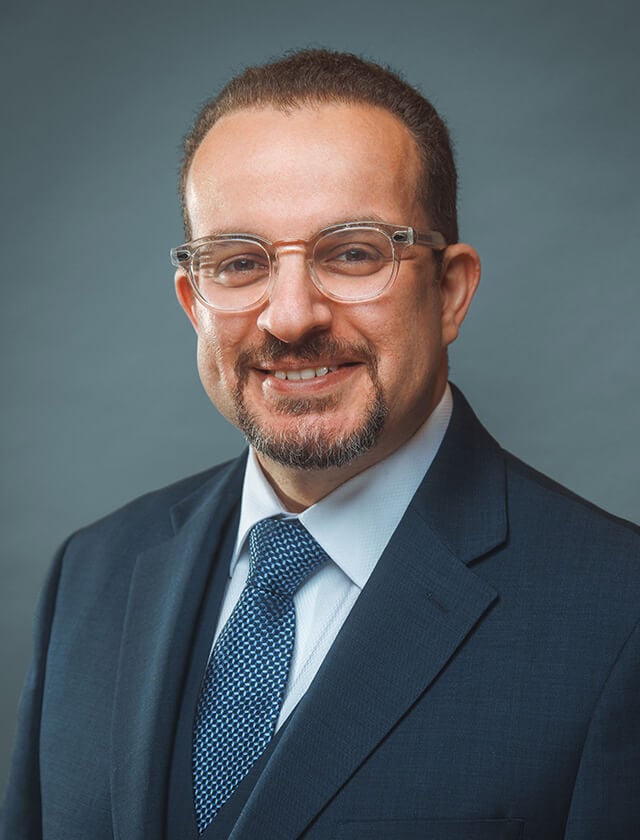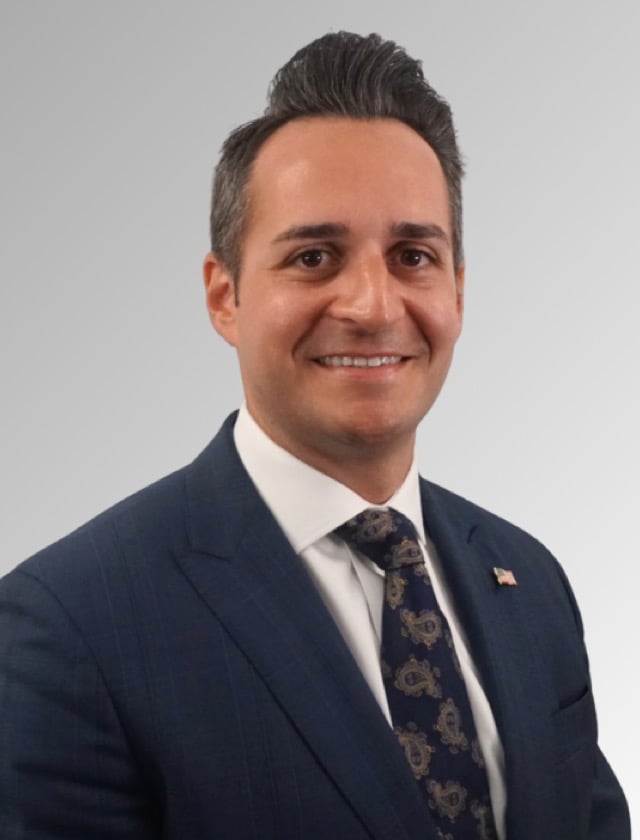We offer advanced, highly sought-after treatments for migraines and occipital neuralgia, including Botox® injections and nerve decompression surgery.
Get Lasting Relief from Migraines and Occipital Neuralgia
Find out if you're a candidate for our Migraine Relief and Occipital Neuralgia Treatment procedures.
Our specialists are among the few across the globe to perform all aspects of reconstructive procedures.
Our Approach to Migraine Relief and Occipital Neuralgia Treatment


Understanding Your Migraines
Migraines are intense, often one-sided headaches that can last from 4 to 72 hours. Symptoms include throbbing pain, nausea, and sensitivity to light or sound. Chronic migraines—15 or more headache days per month—can severely impact daily life and may not respond well to standard medications over time.
Occipital neuralgia, on the other hand, is caused by irritated or compressed nerves in the back of the head and neck. It leads to sharp, stabbing pain, sometimes with numbness or tenderness in the scalp. Though similar to migraines, it requires a different treatment approach.
Our Approach to Care
Patients who suffer from chronic head and facial pain usually experience a complex set of symptoms. Our underlying philosophy is that headaches and their management are very complex. While surgery may be a great answer for many, it may not be for others.
We are proud to be on the cutting edge of migraine and occipital neuralgia treatment with advanced procedures that provide lasting relief. Our treatment options for migraines and occipital neuralgia fall into four main categories: medication, lifestyle changes, non-invasive techniques such as Botox® injections, and nerve decompression surgery.
How
We Can
Help
Medication and Lifestyle Changes:
Simple lifestyle adjustments can make a difference for some headache and migraine sufferers. Tracking symptoms can help identify triggers, and strategies like dietary changes, stress management, or adding supplements may reduce the frequency or intensity of attacks. These modifications are often part of a broader, multidisciplinary treatment plan.
Botox® Injections:
Since 2005, The Institute has been a leader in using Botox® to treat chronic migraines and occipital neuralgia. By relaxing overactive muscles that compress or irritate nerves, Botox® can significantly reduce the frequency and severity of headaches. Many patients experience lasting relief for up to three months with minimal side effects.

Nerve Decompression Surgery
Also known as trigger point deactivation surgery, nerve decompression is a minimally invasive procedure designed to provide lasting relief from chronic migraines or occipital neuralgia. By carefully relieving pressure on the affected nerves, this surgery addresses the root cause of pain and has led to long-term success for many patients. In some cases, patients no longer require medical therapy after surgery.
See What’s Possible Beyond Temporary Relief
Our cutting-edge procedures have helped transform the lives of thousands of patients. Hear their stories:
Am I a Candidate for Occipital Neuralgia Treatment?
- Continue to struggle with chronic headaches despite medication or other conservative therapies
- Experience pain that begins in the neck and radiates to the back of the head or scalp
- Have been formally diagnosed with occipital neuralgia
- Have completed a recent brain MRI (within the last 2 years)
- Have tried an occipital nerve block and experienced relief, even temporarily
- Want to explore advanced options like Botox® injections or nerve decompression surgery for longer-lasting relief
Our Surgeons
About The Institute for Advanced Reconstruction
The Institute is a premier destination for patients seeking lasting relief from migraines and occipital neuralgia. Our surgeons specialize in advanced treatments that help patients reduce or even eliminate chronic pain that once disrupted their lives. People who believed they were out of options now travel from across the country and around the world to our centers in New York City and Red Bank, New Jersey, to find hope and healing.
What sets us apart is our focus on results and quality of life. We use advanced diagnostic testing to uncover the true cause of your headaches, then create a tailored treatment plan that matches your unique condition. With a track record of helping patients achieve significant, long-term relief, The Institute continues to set the standard for advanced headache care.
Filter by:
- Abdominal/BARs
- Abscess and Complex Wound Care
- Aesthetic Flat Closure
- Amputation
- Appendectomy
- ARMS Clinic
- Arthritis
- Avascular Necrosis
- Basal Cell Carcinoma
- Bicep Injuries
- Blepharoplasty - Eyelid Surgery
- Bone Grafting
- Brachial Plexus
- BRCA - Prophylactic Mastectomy & Reconstruction
- Breast Cancer
- Breast Cancer Treatment
- Breast Reconstruction
- Breast Reconstruction Revision Surgery
- Breast Reduction
- Capillary Malformation
- Capsular Contracture Treatment
- Carpal Tunnel Syndrome
- Cellulitis Treatment or Infection
- Cervicogenic Headaches
- Chemotherapy-Induced Peripheral Neuropathy
- Chemotherapy-Induced Peripheral Neuropathy
- Chest Wall Stabilization
- Cholecystectomy (Gallbladder Removal)
- Chronic Hernias
- Chronic Joint Pain
- Chronic Knee Pain
- Chronic Numbness
- Chronic Pain
- Chronic Testicular Pain
- Cleft Lip and Palate Surgery
- CMC Thumb Arthritis
- Colonoscopy
- Complex Regional Pain Syndrome (CRPS)
- Corneal Anesthesia
- Craniofacial Surgery
- Cubital Tunnel Syndrome
- Cyst Removal
- De Quervain's Tenosynovitis
- Decompression Surgery
- Deviated Septum/Septoplasty
- Diabetic Neuropathy
- Diaphragm Paralysis
- DIEP Flap Reconstruction
- DIP Arthritis
- Distal Radius Fractures
- Dysphagia
- Effects of Radiation on Breast Reconstruction
- Elbow & Forearm
- Epigastric Hernia
- Episiotomy Pain
- Erectile Dysfunction
- Excisional Lymph Node Biopsy
- Explant Surgery
- Extensor Tendon Injuries
- Facelift
- Facial Paralysis
- Facial Paralysis Surgery
- Facial Reconstruction
- Facial Trauma
- Failed Hand Surgery
- Fat Grafting
- Femoral Neuropathy
- FLAP Surgery
- Flexor Tendon Injuries
- Foot Drop
- Fractures
- GAP Flap
- Gender Affirmation
- Graves Disease
- Guyon's Canal Syndrome
- Hair Transplant Surgery
- Hand & Upper Extremity
- Hand & Upper Extremity Surgery
- Hand Reconstruction
- Hand, Finger, Arm Replantation & Reattachment
- Headaches & Migraines
- Hemorrhoidectomy
- Hernia Repair
- Hernias
- Hidden Scar Approach
- Hidradenitis Suppurativa
- Hidradenitis Suppurativa Excision Surgery
- High-Risk Patients
- Hypoglossal Nerve Surgery
- Incisional Hernia
- Inguinal Hernia
- Joint Denervation
- Knee Denervation
- Knee Denervation
- Laparoscopy
- Latissimus Flap
- Limb Paralysis
- Limb Salvage
- Lipedema
- Lipoma Removal
- Loop Recorder Removal
- Lumpectomy
- Lymphedema
- Lymphedema
- Lymphedema Treatment
- Male Breast Reduction (Gynecomastia)
- Mastectomy
- Melanoma Skin Cancer
- Meralgia Paresthetica
- Metacarpal Fractures
- Microsurgery
- Microtia/Ear Reconstruction
- MOHS Surgery
- Morton's Neuroma
- Nasal Fracture Repair
- Nasal Valve Repair
- Nerve Compression Syndrome
- Nerve Decompression Surgery in Foot
- Nerve Grafts
- Nerve Injuries
- Nerve Lacerations
- Nerve Reconstruction Surgery
- Nerve Transplantation
- Neuroma & Phantom Limb Pain
- Neuropathy
- Neurotrophic Keratitis / Keratopathy
- Nipple Reconstruction
- Nipple-Sparing Mastectomy
- Nipple/Areola Reconstruction
- Nipple/Areola-Sparing Mastectomy
- Non-Abdominal Free Flap
- Non-healing Fractures / Non-union Bones
- Nose (Rhinoplasty)
- Obturator Nerve Pain
- Occipital Neuralgia
- Oculoplastic
- Oncoplastic Surgery
- Orbital Decompression
- Orthognathic Surgery
- Osteoma Removal
- Pain Management
- PAP Flap
- Pediatric Craniofacial Surgery
- Peroneal Nerve Compression
- Persistent Stiffness
- Phalanx Fractures
- Pharyngeal Plexus Surgery
- Phrenic Nerve
- Pilonidal Cysts
- PIP Arthritis
- Piriformis Syndrome
- Piriformis Syndrome
- Plantar Fasciitis
- Platysmaplasty - Neck/Chin
- Port Placement and Removal
- Positive BRCA Gene
- Post Cancer Treatment
- Post Trauma
- Post Traumatic Headache
- Post-Mastectomy Pain Syndrome
- Post-Mastectomy Pain Syndrome
- Post-Stroke Treatment
- Post-Surgical Wounds
- Preservation of Erectile Function
- Pressure Sore Management
- Pressure Ulcers
- Pronator Teres Syndrome
- Pudendal Nerve Decompression Surgery
- Pudendal Nerve Entrapment Syndrome
- Pudendal Neuralgia
- Radial Tunnel Syndrome
- Radiation-Induced Brachial Plexopathy
- Reconstructive Surgeries
- Recurrent Laryngeal Nerve Surgery
- Revascularization
- Rheumatoid Arthritis in Hand
- Rhinoplasty Revision
- Rotator Cuff Injuries
- Scaphoid Fractures
- Scar Revision Surgery
- Sciatica
- Sentinel Lymph Node Biopsy
- Shoulder & Elbow Arthritis
- Skin Graft Surgery
- Spigelian Hernia
- Spinal Cord Injury
- Sports Hernia
- Sports Hernias
- Squamous Cell Carcinoma
- Sternal Nonunion
- Suprascapular Nerve Entrapment
- Suspicious Nevi
- Synkinesis
- Targeted Muscle Reinnervation (TMR)
- Targeted Muscle Reinnervation (TMR)
- Tendon Injuries
- Tendonitis
- Tennis & Golfer's Elbow
- Thoracic Outlet Syndrome
- Tissue Expanders Followed by Implants
- TMJ Headache
- Toe-to-Finger Transplant
- Torn Earlobe Repair
- TRAM Flap Surgery
- Trigger Finger
- Tuberous Breast Deformities
- Umbilical Hernia
- Vascular Anomalies
- Ventilator Dependency
- Vocal Cord Paralysis
- Wound Debridement
- Wrist Arthritis
- Wrist Drop
- Wrist, Hand & Finger
- OutofState
- Joseph Dayan
- Michael Rose
- Ajul Shah
- Andrew Elkwood
- Hamid Abdollahi
- Shawn Allen
- Peter Andrawes
- Gary Arishita
- Russell Ashinoff
- Joseph Baylan
- Sean Boutros
- Anjeanette Brown
- Gregory Buncke
- Rudolf Buntic
- David Cabiling
- Courtney Carpenter
- Stephen Chagares
- Eric I. Chang
- Minas Chrysopoulo
- Ann Chuang
- Frank Ciminello
- Kari L. Colen
- Desiree D'Angelo
- Joseph Dayan
- Joseph Dayan
- Frank Dellacroce
- George Dreszer
- Stephen Dudick
- Andrew Elkwood
- Andrew Elkwood
- Andrew Elkwood
- Andrew Elkwood
- Andrew Elkwood
- Andrew Elkwood
- Berry Fairchild
- Adam Feintisch
- Nicole Ferro
- James Fletcher
- Anton Fries
- James Frost
- Amon-Ra Gama
- Andrew Gassman
- Patrick Greaney
- Ritwik Grover
- Edward Hahn
- Sanaz Harirchian
- Cassie Hartline
- Sean Herman
- Zuhaib Ibrahim
- Lisa Iucci
- Hari Iyer
- Reza Jarrahy
- Santosh Kale
- Karen Kaplan
- Matthew Kaufman
- Ergun Kocak
- Arjuna Kuperan
- Chris Lakhiani
- Peter Ledoux
- Walter Lin
- Matthew Lynch
- Tyler Merceron
- Ahmed Nasser
- Chet Nastala
- Robert T. Nevitt III
- Oscar Ochoa
- William Ordoyne
- Lauren Otaguro
- Tushar Patel
- Steven Pisano
- Brian Pridgen
- Vaishali Purohit
- Sidney Rabinowitz
- Deepak Ramesh
- David Rayfield
- Rukmini Rednam
- Michael Rose
- Adam Saad
- Bauback Safa
- Erika Sato
- Ajul Shah
- Tzvi Small
- Mohit Sood
- Adriana Suarez-Ligon
- Scott Sullivan
- Yolanda Tammaro
- Pankaj Tiwari
- Stephen Toran
- Christopher Trahan
- David Tsai
- Hakan Usal
- Andrew Watt
- Eric Weiss
- Jonathan Weiswasser
- Lauren Whipple
- Eric Wimmers
- Whitten Wise
- Mary Jo Wright
- Mary Jo Wright
- Mark Yazid
- Sarosh Zafar
Multiple Offices Conveniently Located Across New York, New Jersey, and Pennsylvania
Suite 19
Bridgewater, New Jersey 08807
Building 200, Suite 200
Cape May Court House, New Jersey 08210
Suite 201
East Brunswick, New Jersey 08816
Suite 101
East Windsor, New Jersey 08512
Egg Harbor Township, New Jersey 08234
Suite 1A
Freehold, New Jersey 07728
Suite 390
Pennington, New Jersey 08534
Suite 202
McKinney, Texas 75069
Suite 4
Glen Ridge, New Jersey 07028
7th Floor
Neptune City, New Jersey 07753
Rear Entrance
New Orleans , Louisiana 70130
Building 2 - First Floor, Suite 200
Red Bank, New Jersey 07701
Suite 101
Richardson, Texas 75082
Suite 304
Westwood, New Jersey 07675
Frequently
Asked
Questions
In occipital neuralgia, the occipital nerves that run from the top of the spinal cord up through the scalp are injured or inflamed, which is what causes the painful headache symptoms. In addition to pain, these headache sufferers can feel tenderness or diminished sensation around the nerve area.
While occipital neuralgia causes a jabbing pain in the area of the occipital nerve, migraines are characterized by recurrent headaches lasting 4-72 hours. Occipital neuralgia causes similar problems to migraine headaches, but may respond very differently to certain forms of treatment. Neurologists and other headache specialists sometimes have difficulty diagnosing the headache condition as one or the other, and there may be overlap in the classification. The bottom line is that there are 28 million migraine sufferers in the United States, one-third of whom find little or no benefit from traditional medical therapies.


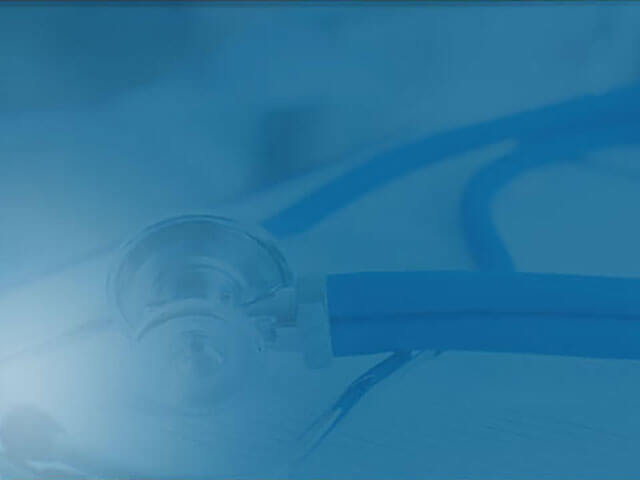






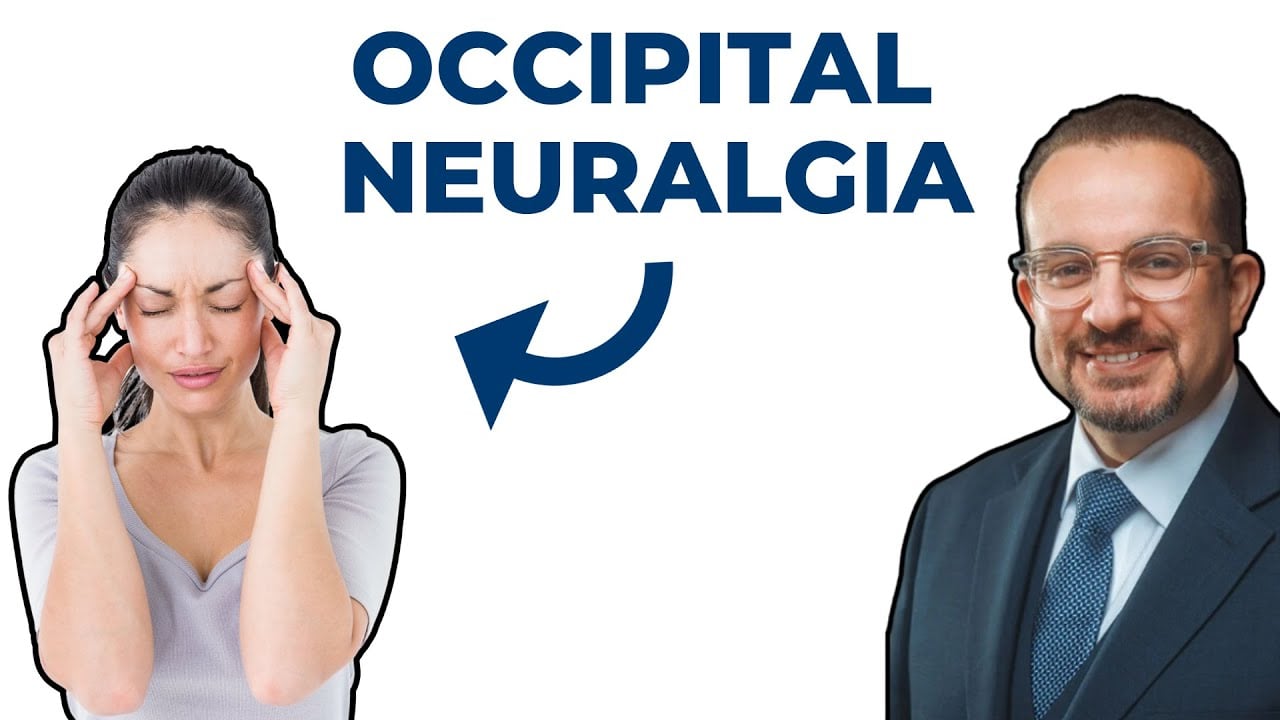


.webp)
